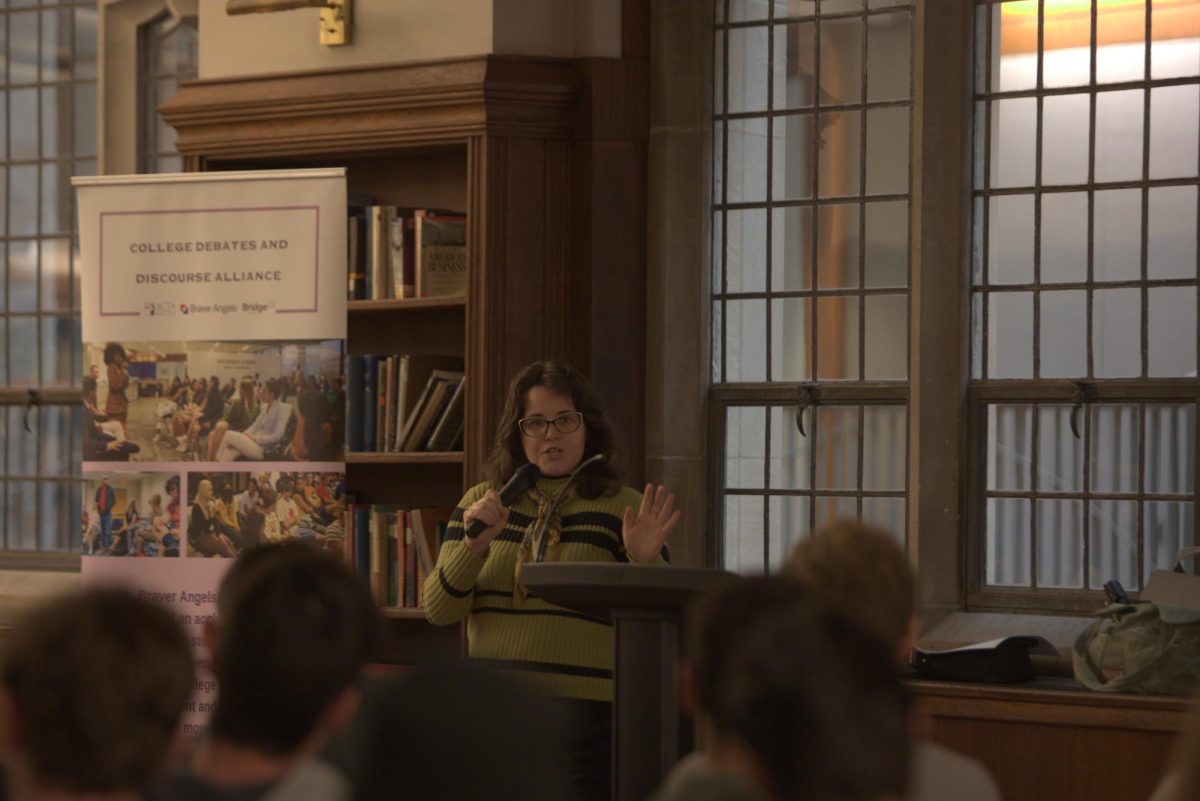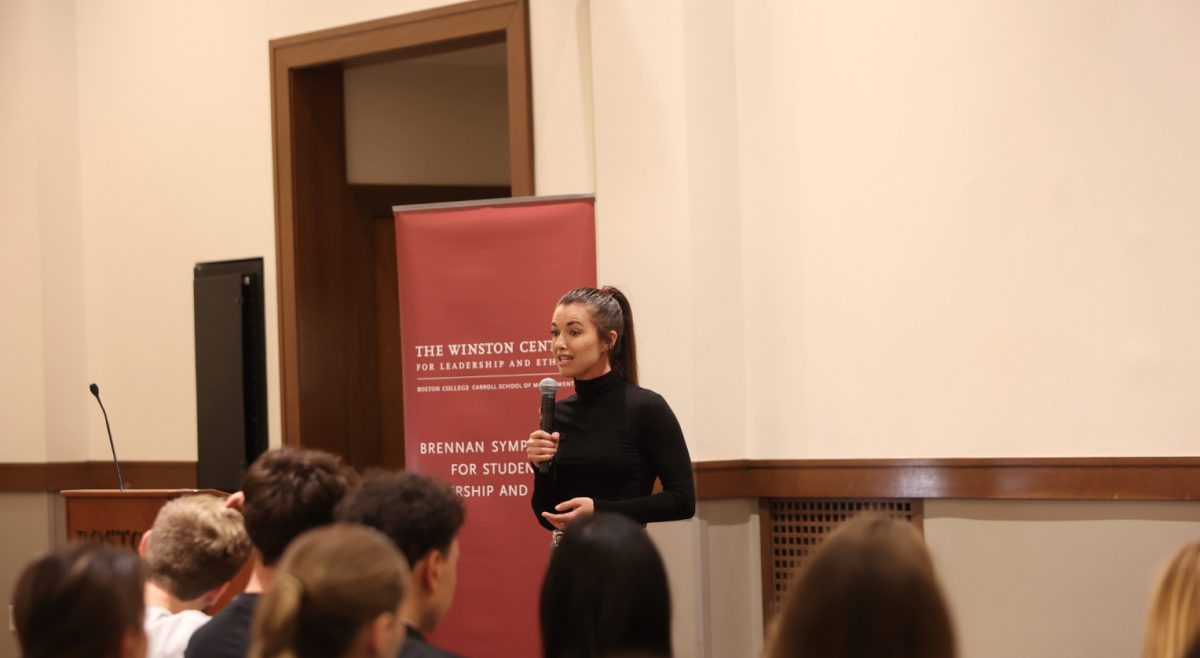Boston College reported a slight increase in sexual assaults between 2014 and 2015—from 23 to 27—according to statistics released last fall under the Clery Act, which requires the annual disclosure of certain crime statistics and campus security policies. The increase follows a rise from 11 reported assaults in 2013 to 23 reported in 2014.
Katie Dalton, director of the Women’s Center, said in an email that she believes the increase is in reporting, rather than incidences of assaults, as the Women’s Center continues outreach and education around sexual violence prevention and response. That has included the hiring in 2014 of Rachel DiBella as assistant director of the Women’s Center to work specifically on sexual violence response services.
As part of her role, DiBella has professionalized the Sexual Assault Network (SANet), the University’s confidential resource for reporting sexual misconduct, and worked on bystander intervention education—which all freshmen have received in their residence halls starting in 2012. She has also worked on a sexual violence prevention program that launched last year called the Bystander for Student Leaders presentation, which is aimed at athletes and students whose high social influence gives them the responsibility of making BC a healthy environment.
“Rachel is a trauma-informed social worker who has developed a strong reputation across campus for her work with survivors,” Dalton said.
Catherine Larabee, BC ’16, said in September 2015—around the time the crime statistics for 2014 were released—that as awareness grew of resources available to survivors, the number of reported incidents would ideally increase, and then eventually level off as bystander education became universal and was applied by students.
DiBella said in an email that BC offers an array of options in terms of reporting sexual misconduct. Privileged resources, which include professional or pastoral (religious) counselors, are not required to disclose a sexual misconduct report from a student without his or her consent, according to the University’s Student Sexual Misconduct Policy. Privileged resources may be required to report to non-BC entities for separate reasons, including if there is the threat of imminent harm to self or others.
Confidential resources include SANet and licensed clinicians in University Counseling Services, and they also are not required to disclose reports at the request of the student, barring some legal or ethical obligation to do so.
DiBella said that most University employees are considered “Responsible Employees” under Title IX, which means they are required to report what they learn about an incident to BC’s student Title IX coordinator, Senior Associate Dean of Students Carole Hughes. DiBella said that BC’s resources align with what is required under the Clery Act and Title IX.
BC does not notify the University community of a sexual assault unless BCPD determines there is an ongoing threat to campus safety, in which case it can release a safety notice, Hughes said in an email. BC only publishes total statistics, not a breakdown of off-campus vs. on-campus assaults or locations on campus.
In December, The Boston Globe published a review of sexual assault reports at area universities that found that reporting has become more common at BC and other schools. On its Charles River campus, Boston University reported 12 assaults in 2014 and 17 in 2015, according to its Clery Act disclosures. Harvard University reported 54 assaults in 2015, up from 43 in 2014 and 40 in 2013, according to its disclosures.



















